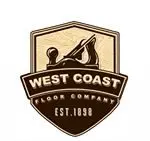Maple flooring has gained popularity in residential settings, but what about commercial spaces? This FAQ explores the suitability of maple flooring for various types of commercial environments, highlighting its benefits, durability, and considerations for use. Whether you’re a business owner or a contractor, understanding the characteristics of maple flooring can help you make an informed decision.
Understanding Maple Flooring
Maple flooring is known for its distinctive beauty and strength, making it a popular choice across different settings. This wood species is light in color, with subtle variations in grain that add character to any space. It provides a warm, inviting atmosphere that can enhance businesses ranging from boutiques to cafes.
Not only is maple aesthetically pleasing, but it is also a dense hardwood. This density provides a significant advantage in high-traffic areas where durability is paramount. When you consider how often floors in commercial spaces endure wear and tear, maple’s hardness is a substantial benefit over softer woods.
For business owners questioning the suitability of maple flooring, it is essential to understand its specific characteristics. Maple has a natural resistance to developing scratches and dents, which makes it easier to maintain its pristine appearance over time. With proper upkeep, maple flooring can continue to impress for years.
Benefits of Maple Flooring in Commercial Spaces
One of the primary benefits of maple flooring in commercial environments is its versatility. Whether you operate an upscale restaurant or a trendy retail shop, maple can easily adapt to various design aesthetics. Its timeless appeal complements both classic and modern styles, enabling it to fit seamlessly into diverse decors.
Another noteworthy advantage is that maple flooring is less likely to warp or crack when exposed to humidity changes. This characteristic is particularly crucial in spaces such as gyms or spas, where moisture levels can rise. A stable flooring option like maple can save business owners from costly repairs down the road.
Additionally, maple flooring is quite eco-friendly. Sourced from sustainable forests, it offers a practical flooring solution for companies mindful of their environmental impact. By choosing maple, businesses not only invest in their own spaces but also contribute positively to the planet.
Durability and Maintenance Considerations
In evaluating durability, maple flooring stands out as one of the top choices. It boasts a Janka hardness rating that exceeds many other hardwoods, which means it can handle significant foot traffic without succumbing to damage. This resistance makes it ideal for retail stores, offices, and public spaces.
However, while maple is durable, it’s also essential that businesses implement proper maintenance practices to extend its lifespan. Regular sweeping and occasional mopping with a gentle cleaner will maintain the flooring’s finish. Moreover, applying a protective topcoat can shield against scuffs and stains.
Finally, addressing scratches is vital. Although maple is tough, it’s not entirely scratchproof. Utilizing area rugs in high-traffic zones and ensuring furniture pads are used can help mitigate potential scratches, keeping the floor in excellent condition and prolonging its beauty.
Best Types of Commercial Spaces for Maple Flooring
Maple flooring excels in various commercial settings. For instance, boutique shops can greatly benefit from its elegant, polished look, which enhances the shopping experience. Its light color helps small spaces appear more open and inviting, attracting customers.
Restaurants are another ideal environment for maple flooring. The wood’s warmth contributes to a cozy ambiance, making diners feel relaxed and comfortable. Its resistance to spills and ease of cleaning align well with the requirements of a busy eatery.
Furthermore, professional offices appreciate maple for its professionalism and sleek appearance. The flooring’s durability ensures that it can last through years of employee foot traffic while still maintaining a classy look. This choice communicates a message of quality and commitment to clients and employees alike.
Cost Factors and Installation Tips
When it comes to costs, maple flooring sits in the mid to high range of hardwood options. Initial investment is something every business should consider, but the long-term value is evident through its durability and low maintenance. Properly installed and cared for, it can last decades, making it worthwhile.
Installation is another critical aspect. Hiring a professional can be beneficial to ensure that the floor is correctly laid. An expert can also advise on acclimation, which allows the wood to adjust to the building’s atmosphere before installation, mitigating future warping or gaps.
Businesses should also consider seasonal changes when planning installation. Installing during milder months can reduce the risk of moisture-related issues, ensuring a successful and aesthetically pleasing outcome. Proper planning in both budget and timelines can lead to a seamless transition into a beautiful maple-floored space.
Final Thoughts on Maple Flooring for Commercial Use
In summary, maple flooring can be an excellent choice for commercial spaces if selected and maintained properly. Its durability, aesthetic appeal, and ease of maintenance make it a contender for various business environments. Always consider the specific needs of your space to ensure the best outcome.

